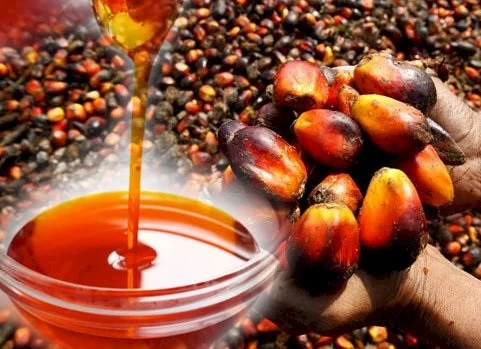The federal government plans to use the agric sector to signpost its diversification plans and move the economy away from crude oil but the fact that the country imports more than $500 million of palm oil annually indicates that the task ahead is Herculean.
The import deficit is testimony to Nigeria’s fall from grace to grass as far as palm oil is concerned. Most Nigerians are all too familiar with the tale that the second-world leader in oil palm production, Malaysia, got its early palm seedlings from Nigeria in the 1960s. Six decades down the line, Malaysia has leaped to number two in the world with an annual production of 17.73 million metric tons while Nigeria is number four with 1.02 million metric tons after Thailand. Though Nigeria’s production has increased from 537 million metric tons in 1960, the growth was slower than what the growth in population and industrial demands required. This has left a supply gap of about 500, 000 metric tons, according to FBNQuest Research.
The snail speed growth reflects Nigeria’s poor planning and lack of vision that has trailed the country, especially since the discovery of crude oil. Since oil was struck in 1958 at Oloibiri and the hefty petrodollars that followed, all eyes of the near-sighted leaders were trained on the earning power of the black gold to the neglect of every other value-adding and potentially value-adding resource, including palm oil, thus putting the country at the fringes of a $40 billion market. This is despite Nigeria being “the second largest recipient of World Bank palm oil sector projects, with six projects over the 1975 to 2009 period.
It is sad that the government failed to see that the country has a comparative advantage over many others in factor inputs, including cheap labour and entrepreneurship. It is exasperating that even today’s government fails to see that this is a low-hanging fruit for the government’s diversification plans. Indeed, when one considers the range of products that have palm oil input (soaps and detergents, cosmetics, pharmaceuticals, biscuits, biodiesel among others), it is a wonder that the manufacturing sector is among the first to slip into recession. Not only would local consumption of goods by Nigeria’s 212 million strong population ensure that growth, the sheer export of surpluses to neighbouring countries would have guaranteed it, with the extra forex earnings that it would have occasioned.
The good news is that the government can retrace its steps as the $40 billion industry is said to be hungry for more products and the manufacturing sector is expected to fuel global growth. Nigeria can get in the game by supplying the input while also putting an eye on value addition with the oil palm business. Results from the country’s most prominent players, Presco and Okomu suggest that the industry is booming and can do with a lot of support to up the ante. In this regard, the government can encourage more players to come into the fray by introducing policies that would help the cause and make available at a subsidised rate, resources including capital and farm inputs.
What is especially favourable for Nigeria, at this time, is that the biggest buyers of the product are its traditional and biggest partners India, China, and the European Union. But the big mistake will be having the government run the show when they should only concentrate on providing the enabling environment. As a matter of fact, it was the government’s involvement that ruined the prospects of the industry as it destroyed other state-owned enterprises from NEPA (PHCN) to NNPC. The wholesale plunder of Risonpalm in Rivers State is there for all to see. But if the government insists on a piece of the pie, it can work towards the public-private partnership model and the time to act is now.





